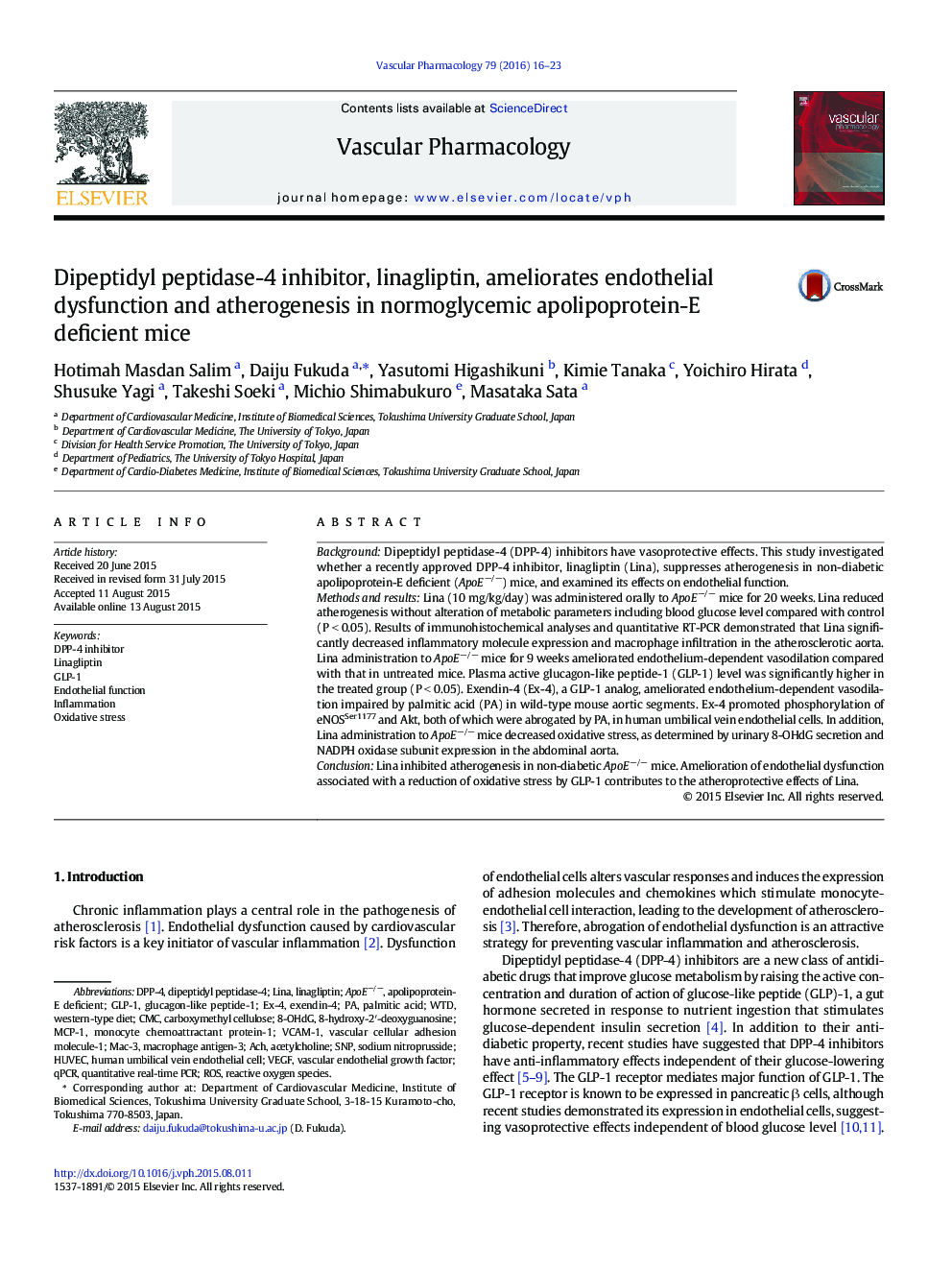| Article ID | Journal | Published Year | Pages | File Type |
|---|---|---|---|---|
| 2573940 | Vascular Pharmacology | 2016 | 8 Pages |
BackgroundDipeptidyl peptidase-4 (DPP-4) inhibitors have vasoprotective effects. This study investigated whether a recently approved DPP-4 inhibitor, linagliptin (Lina), suppresses atherogenesis in non-diabetic apolipoprotein-E deficient (ApoE−/−) mice, and examined its effects on endothelial function.Methods and resultsLina (10 mg/kg/day) was administered orally to ApoE−/− mice for 20 weeks. Lina reduced atherogenesis without alteration of metabolic parameters including blood glucose level compared with control (P < 0.05). Results of immunohistochemical analyses and quantitative RT-PCR demonstrated that Lina significantly decreased inflammatory molecule expression and macrophage infiltration in the atherosclerotic aorta. Lina administration to ApoE−/− mice for 9 weeks ameliorated endothelium-dependent vasodilation compared with that in untreated mice. Plasma active glucagon-like peptide-1 (GLP-1) level was significantly higher in the treated group (P < 0.05). Exendin-4 (Ex-4), a GLP-1 analog, ameliorated endothelium-dependent vasodilation impaired by palmitic acid (PA) in wild-type mouse aortic segments. Ex-4 promoted phosphorylation of eNOSSer1177 and Akt, both of which were abrogated by PA, in human umbilical vein endothelial cells. In addition, Lina administration to ApoE−/− mice decreased oxidative stress, as determined by urinary 8-OHdG secretion and NADPH oxidase subunit expression in the abdominal aorta.ConclusionLina inhibited atherogenesis in non-diabetic ApoE−/− mice. Amelioration of endothelial dysfunction associated with a reduction of oxidative stress by GLP-1 contributes to the atheroprotective effects of Lina.
Graphical abstractFigure optionsDownload full-size imageDownload high-quality image (56 K)Download as PowerPoint slide
